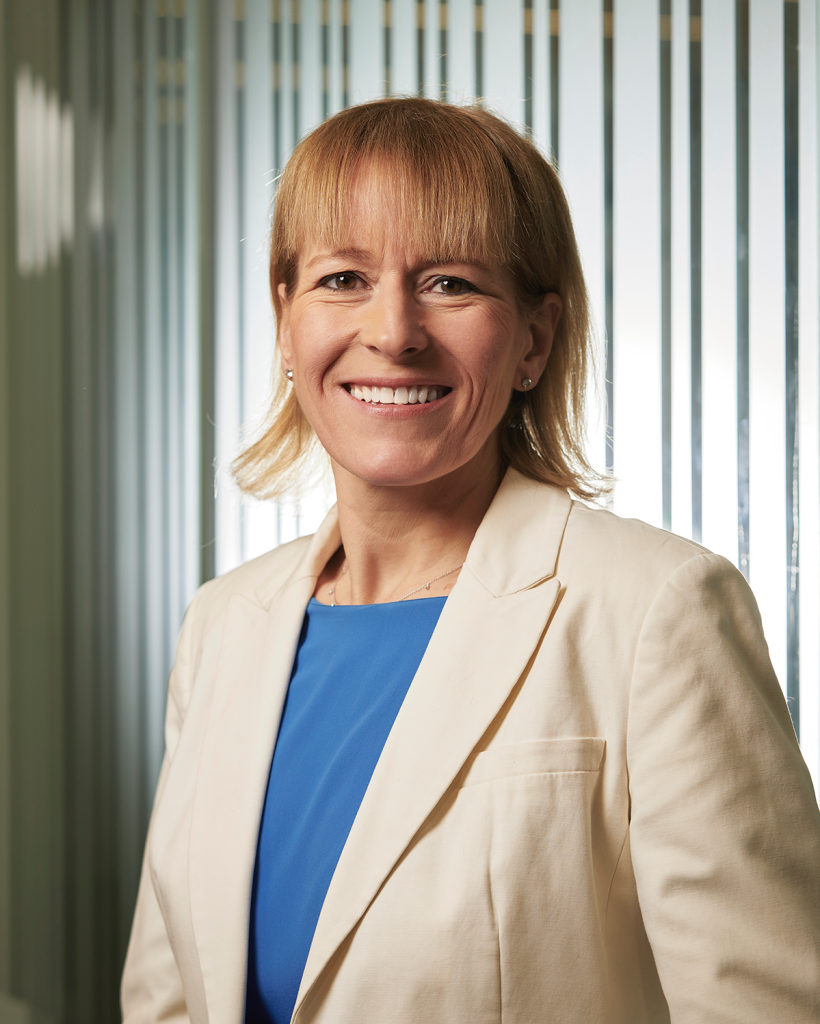Advisory Board

Julian Wells
Director, Whitecap Consulting
Julian is a strategy consultant with over 25 years experience in financial and professional services.
Whitecap Consulting is a strategy consultancy based in Leeds, Manchester, Milton Keynes, Bristol, Newcastle and Birmingham. It is particularly active in high growth sectors. Whitecap’s financial services clients have included banks, building societies, technology providers, FinTechs, retailers, universities, and various firms in the intermediary financial services market.
Whitecap is involved in multiple regional FinTech and LegalTech ecosystems. The firm is directly involved in FinTech North and FinTech West, both of which it helped create and now helps coordinate. Via these initiatives, Julian is also involved in the FinTech National Network which was created in 2019 to help link the national Fintech sector across the UK. Whitecap also leads the LegalTech in Leeds initiative, which is a regional LegalTech community in the Leeds City Region which is linked to various national initiatives.
Charlotte Crosswell OBE
Chair of the Centre for Finance, Innovation and Technology (CFIT)
Charlotte has been involved in capital markets, fintech and technology throughout her career – as CEO, Chair, Board Advisor and Non-Executive Director. Prior to CFIT, Charlotte was Chair and Trustee of Open Banking and was also CEO of the fintech industry body, Innovate Finance. In this role, she supported the work of Sir Ron Kalifa in delivering the strategic fintech review (“The Kalifa Review”). She works closely with entrepreneurs, financial services firms, academia, government and regulators on fintech advocacy and strategy. Charlotte received an OBE for her contribution to financial services in the Queen’s Birthday Honours 2021. She believes firmly in a diversity and innovation-first approach.


Pavle Avramovic
Head of Market & Infrastructure Observatory
Cambridge Centre for Alternative Finance, University of Cambridge
Pavle is the Head of the Market & Infrastructure Observatory at the Cambridge Centre for Alternative Finance, University of Cambridge. His focus is on providing impactful research, tools and education on the overlap between the digitalisation of financial services and infrastructural developments across identity, payments, data systems and broader technological innovations.
Previously, he led on the establishment of the Emerging Technologies Hub at the Financial Conduct Authority (FCA). In this role, he provided insights and thought leadership on the intersection between technology and regulation, analysing the impact of innovative trends on financial services. His technological areas of focus include quantum computing, privacy enhancing technologies, synthetic data and distributed ledger technologies.
He holds a MSc in Digital Innovation and Information Systems from the London School of Economics and he has co-authored papers for the Harvard Data Science Review, Alan Turing Institute and other international organisations, including presenting at major conferences and research seminars.
Lauren Langton
Head of Advocacy for incuto
Lauren is Head of Advocacy at incuto, a Yorkshire based company who provides a multisided platform for credit unions, community banks and CDFI’s. By improving the infrastructure of these “responsible lenders”, incuto directly contributes to the impact they have on their members, presenting them as credible alternatives to high interest lenders, including loan sharks.
Lauren’s previous role was as CEO of Northumberland Community Bank (NCB), created in 2017 after the successful merger of 2 credit unions. During her tenure, Lauren led the digital transformation of NCB, using incuto’s developing range of products and services.
Prior to working in community banking, Lauren had over 30 years’ experience working for Yorkshire & Clydesdale Banks, fulfilling various roles in a wide range of areas such as private banking, lending, compliance and marketing.
She is now dedicated to changing the affordable lending sector to enable it to play a more prominent part in the UK’s financial services sector.


Pinar Emirdag
Entrepreneur, Executive, Product Development
Pinar is an entrepreneur and executive who has been building products, businesses, markets, services, at the intersection of financial services and technology.
Pinar was globally responsible for Digital Client Services at JP Morgan, Digital Platform & Services. Prior to this, Pinar was at State Street where she was the SVP, Head of Digital Product Development & Innovation.
Leading to building digital products, she focused on emerging business models and technologies, such as decentralized services and platforms. Her journey included Clearmatics, Complymatic, FintechPark, R3, Hyperledger, Quantave, UK Digital Currency Association, Mathmoneyfx (now Symbiont) and Hupomone, her advisory firm.
Pinar worked on a range of major industry changes in capital markets and electronic trading offerings at the London Stock Exchange, ICAP, Liquidnet, Citigroup, and Lava Trading – technology firm acquired by Citigroup. She started her business career at Oliver Wyman.
Pinar received the Waters Technology Awards for Technology Innovator of the Year in 2019. She is a member of the Industry Liaison Board, Department of Computing at Imperial College. She is also the Specialty Chief Editor of the Frontiers in Blockchain publication.
Pinar holds a Ph.D in Physics and M. Sc. Degrees in Electrical Engineering and in Physics from Brown University and a B.S. degree in Physics from Bilkent University.
Professor Muttukrishnan Rajarajan
Professor of Security Engineering & Director Institute for Cyber Security
Professor Rajarajan (Raj) is the founding Director of the Centre for for Cyber Security for Society (MOBS) at City University of London. Raj’s expertise are in the areas of financial technology, identity management, Cloud Security, network security, data privacy and IoT security. Raj has led several cyber security and privacy related research and commercialisation projects in the UK and internationally. He has published more than 350 conference and journal papers, four books and hold four patents in the area of data privacy. He continues to work closely with many deep tech start-ups by translating his research into commercial products to make a societal impact through technology. He is an advisory board member for London Cyber Resilience Centre, founding member of the London Cyber Security Cluster (UKC3) and also a Visiting Fellow at the British Telecommunications Security and Innovation labs.


Faith Reynolds
Devon Fields Consulting
Faith Reynolds works in an advisory capacity across a number of consumer-finances initiatives. She is an advisor to the board at TISA and is leading on research initiatives to improve communications and break down barriers to investing. She works with start-up Amplified Global and is the industry lead for a BA Fellowship with the University of Nottingham using novel methods to improve consumer understanding of complex legal and regulatory communications. She is also a non-executive director at Fair4All Finance which distributes dormant assets for financial inclusion. Faith is a non-executive director at the Payment Systems Regulator and previously was the Independent Consumer Representative at the Open Banking Implementation Entity. She has authored several reports into Open Finance and Smart Data. She was an independent director for the Current Account Switch Service and a long-serving member of the FCA’s Financial Services Consumer Panel.
Terms of Reference
Project Overview
The UKFin+ network’s mission is to bridge the gap that currently exists between the research in universities and the need of the financial services industry, its consumers and the regulator. Based on an inclusive, diverse and responsible research culture it will harmonize technological know-how across regions and connect regional partners to nation-wide efforts.
Real-life challenges in financial services are complex, combining responding to technology innovation with business ethics, green/environmental considerations and scarcity in the talent pipeline. This presents the financial services sector with wicked problems, which the industry cannot ignore, and which require practitioners and researchers from across disciplines to come together. UKFin+ aims to address wicked problems in financial services that are associated with innovation in technology, mathematics and sciences.
Central to UKFin+ is its ‘commissioning framework’, which provides the funding mechanisms for five types of collaborative projects between academia and partners: seed project funding which aims to explore technological, mathematical and scientific solutions for real-life challenges in financial services; larger multi-disciplinary feasibility projects, which may build on the seed projects, and expand to consider ‘wicked’ multi-disciplinary research problems; agile projects which can be of any type e.g. horizon scanning, population survey, a software prototype or a machine learning application; impact projects to take any of the research projects further e.g., to influence policy makers, or initiate commercialisation and education/engagement projects support growth of the financial services talent pool. UKFin+ funding is intended to act as a springboard for long term collaboration at larger scale.
To support researchers and partners in these projects, UKFin+ establishes a number of services the community can use. The co-design service and the corporate digital responsibility service help researchers to consider these aspects in their proposals. The secure data vault, the shared code base, the experimentation sandbox and template IP arrangements are available to improve research, its impact and to lower collaboration barriers.
Advisory Board Members
Advisory Board Chair:
Faith Reynolds, Devon Fields Consulting
Academic members
Professor Daniel Broby, Chair in Financial Technology, Ulster University
Professor Sharon Collard, Chair in Personal Finance, University of Bristol
Professor Muttukrishnan Rajarajan, Professor of Security Engineering, City University and Founding Member of UKFAN
Professor Lukasz Szpruch, Professor, School of Mathematics, University of Edinburgh
Not for profit members
Lauren Langton, Head of Advocacy for incuto
Leigh Smyth, Independent Consultant and Chair of the Digital Poverty Alliance
Industry members
Charlotte Crosswell – Centre for Finance, Innovation and Technology
Chris Jessup, Director FinTech Northern Ireland
Neil Harris, Chair, The inclusion Foundation (CIC)
Dr Clement Stross, LeadData Scientist, Admiral Group
Julian Wells – Director, Whitecap Consulting, FinTech North & FinTech West
Government and Regulatory Bodies
Pavle Avramovic – Manager, Emerging Tech & Research, Financial Conduct Authority (Personal Capacity)
EPSRC Project Officer – Stephen Webb
Project Manager – Sheena Robertson
Project Officer (minutes) – Helen Orpin
Role of the Advisory Board
- Review UK Fin+ network programme, and act as a critical friend to shape it within the context of the UK FinTech landscape
- Provide advice on the strategic direction of UK Fin+
- Suggest ways of extending and developing the UK Fin+ network
- Act as advocates of the UK Fin+ network within stakeholder communities
- Support and advise on longer term sustainability of UK Fin+
- Act as a springboard for larger scale collaborative FinTech projects
- Engage in stakeholder and landscape mapping to ensure developments in the sector feed in to UKFin and duplication is avoided.
Membership Expectations
Members of the Advisory Board are entitled to expect the following:
- Structured meetings where everyone’s voice is listened to and respected
- Meetings focused on challenges that require independent and objective input, with challenges being notified in advance.
- Timely provision of meeting papers at least a week in advance
- Minutes circulated within two weeks of meetings
- To be invited to all project events
- A minimum of a week to provide comment on any information issued
- For all relevant comments to be fed into the decision-making process
- Meetings to be kept to a minimum and advice to be sought via email or telephone as mutually agreed appropriate
- Confidentiality where specifically requested
- The Advisory Board is to have a monthly update, with the opportunity to comment
What the UK Fin+ Network should expect from Advisory Board members:
- Commitment to attend meetings and to provide advice relating to their area of expertise, on specific aspects of the project in a constructive manner
- Enthusiasm for the Network and willingness to contribute their professional advice
- Advocacy of the Project through communication with their respective communities / organisations / networks as appropriated
- Bringing knowledge of developments in the UK FinTech sector
- Written notification should they choose to discontinue membership
- Confidentiality where specifically requested
UKFin+ funding decisions are made by the UKFin+ academic investigators. Advisory Board members are not expected to comment on funding proposals, and are eligible to apply for funding.
Meeting frequency:
At least three meetings per year, nominally in early February, early July and October, and as needed to address specific challenges and themes.
The Advisory Board advises the Directors of the UKFin+ network. UKFin+ network is a consortium of four universities (add) led by the University of Birmingham. The network is funded from the EPSRC who top and tail.
Directors can attend the Advisory Board as observers.
